- Home
- Patricia Cornwell
Ruth, a Portrait Page 12
Ruth, a Portrait Read online
Page 12
In 1952, Billy, helped by Ruth, wrote his first book, Peace with God. On July 14, Ruth gave birth to their fourth child, a husky first son they named William Franklin Graham III. Billy could not hide his joy as he proudly carried him into the house for the first time. “I’d have loved another girl. But every man needs a son,” he proclaimed of this feisty child who in 1996 would take over his father’s organization and ministry and appear on the cover of Time magazine with him.
In 1953, Billy spoke at Church House, Westminster, in London. The English clergy and laity were impressed and invited him to hold a major campaign in their city the following year. The result would be the twelve-week Greater London crusade and Ruth’s longest separation from her children.
1. Years later, during the Greater London crusade, the controversy over makeup again resurfaced. With great amusement, Ruth noted aloud to her husband that the mark of streetwalkers in a certain section of the city was that they wore no makeup.
10
CHAPTER
That Hustling Baptist Preacher
PREACHING, 1950
I used to worry about Billy. When he started out, there was all that adulation. I was worried he might be tilted off balance by it. But then I met Ruth. Then I relaxed, knowing he had that strength on which to lean.
—Paul Harvey
The SS United States cut a wide, frothy furrow through the North Atlantic, and red and black stacks smudged gray across the light blue sky as the ship progressed northeast at thirty-five knots.
Midship in a handsome stateroom of soft rose, beige, and brown sat the “Revival Widow,” as Ruth had been dubbed by the press. In front of her, three portholes gently bobbed as she sat on her bed writing a letter home while Billy conferred with team members. “Dearest Folks,” she penned, “Here we are … already halfway to England. What a ship this is…. You should see our quarters! I’m sure John Wesley never had it so good.” Her cheerfulness was a façade. Leaving her children would always be a wounding sadness she almost could not bear.
It was early afternoon aboard ship on February 20, 1954. The rising sun would be simmering behind the mountains in Montreat. When her mind drifted there, she could see mist wafting over her cloistered world, and shadows shyly creeping out from under thickets around the yard. She imagined rhododendron leaves tightly whorled in the brittle, wintry air, and twigs and branches wearing thick sleeves of ice along the rich black banks of the stream east of the patio.
I’m so glad Bill has these few days of quiet and rest and wonderful food…. The menus are fabulous. And they urge you to ask for anything you can think of whether on the menu or not. For hors d’oeuvres I ordered pâté de foie gras one day as I’d read of it but didn’t know what it was. I still don’t…. Also had kangaroo tail soup. It was as nasty as it sounds. All I can think of that I’d really love, now that the voyage is drawing to a close, is corn bread and turnip greens.
She wrote with a fountain pen, waiting for shimmering black ink to dry as she kept one ear to the door. She had come to dread the quick step and staccato knock of Rob, their officious English cabin boy whose brisk and unannounced arrivals kept her busy darting into closets. The first evening aboard, she was standing in their hallway in her “sheer nightie” when he appeared in all his crisp efficiency. Dashing into the baggage room, she barely managed to snatch a robe out of her suitcase before another cabin boy opened the rear entrance in search of a passenger’s luggage.
“Ah! Ah! Ah!” Rob wheeled around the corner, flailing after him like a crazed windmill. “Madame is in there!”
“All said,” Ruth concluded, before folding the ship’s creamy stationery, “I’ve been wishing for a little less service and a little more privacy.”
In three days the Grahams would arrive at Southampton for the beginning of the twelve-week Greater London crusade at Harringay Arena in the north end of the city. Owned by the Greyhound Racing Association, the arena could hold some twelve thousand people. The London crusade committee had leased it for thirty-three thousand pounds at a time when money was scarce and preachers didn’t draw crowds in England.
Billy’s ministry was not yet well established outside the United States, and he was tense. He had insisted that Ruth accompany him. Uneasy about leaving her four children for such a long time, she told him that she would go only if she could sail home after the first month and return for the last. A friend had offered her a round-trip ticket to do this, and Billy reluctantly agreed. She carefully packed just enough to get her through four weeks. Her plans, however, were to disintegrate when he decided he absolutely could not do without her. Accompanying him, she would learn, also did not necessarily ensure quality time alone. During her three-month stay, they would find time for but a few meals together each week.
Ruth had hoped that when they reached Southampton, they would disembark relatively unnoticed. But on Monday morning, February 22, shortly before breakfast, the chief steward arrived at the Grahams’ door holding a three-page radiogram. He explained that his copy of the morning news included an item which the captain, in an attempt to spare the Grahams any embarrassment, had ordered struck from the ship’s newsletter. The chief steward handed Billy the original report. At the bottom of the first page, directly above an announcement of Queen Elizabeth’s travel plans and below news that Senator Paul Douglas was appealing to President Eisenhower to recommend more tax cuts, was the following:
London: A Labour Member of Parliament announced today he would challenge in Commons the admission of Billy Graham to England on the grounds the American evangelist was interfering in British politics under the guise of religion.
Billy discovered that the sudden uproar stemmed from a mistake in the calendars that the BGEA had mass-mailed to generate prayer and financial assistance for the crusade. The caption beneath one of the photographs read, “What Hitler’s bombs could not do, Socialism with its accompanying evils shortly accomplished.”1 When Billy’s director of Crusade Planning and Organization, Jerry Beavan, had written the phrase, he had not realized that Socialism, with a capital 5, was synonymous with the Labour Party. Intentional or not, it was an unfortunate choice of words in a country still raw from the wounds of World War II. It seemed to some in Great Britain that Billy Graham was meddling in politics.
The mistake had been caught earlier, before most of the calendars had been mailed. A few, however, had slipped out. One found its way to Fleet Street and landed on the desk of Hannen Swaffer, the acid-tongued columnist for the left-wing Daily Herald. The furor began, culminating in Labour Party member Geoffrey de Freitass issuing the statement that Billy had read in the radiogram. “For a while there,” Ruth wrote, “the wireless was kept buzzing with accusations, explanations, and apologies. And it kept us busy praying too, that the Lord would overrule this inadvertent mistake to his glory.”
The crusade’s chairman, General D. J. Wilson-Haffendon, sent Billy a telegram graciously offering advice and his hope that the blunder might indeed prove beneficial. “It’s most unfortunate that while you were at sea this flare blew up,” he wrote. “And it has made certain that a very much greater number of people will know about your ministry. But, I think it is vitally important that you should be extremely circumspect on the whole question of politics over here because the very people whom we hope to reach through the crusade are the people who are most offended at the unfortunate use of the word ‘Socialism.’”2
The Grahams were warned that as a result of the controversy, the press would be on them like a pack of wild dogs. Sure enough, as the ship drew near Southampton the next afternoon, Ruth stared out a porthole and watched a tug pull alongside them. Twenty-five reporters and eleven photographers shoved their way aboard the SS United States. The Grahams already had abandoned their room, warned that it would be the reporters’ first destination. The media and the public would always have a voyeuristic curiosity about how much the Grahams spent on food, shelter, transportation, overcoats, shoes. It was not uncommon for a passerby to make rud
e remarks beginning with “If Jesus were here today” and ending with any number of things: “Would He wear a hundred-dollar suit, eat steak, fly in a jet, own a swimming pool, drive an Oldsmobile, or stay in the Holiday Inn?”
Once a reporter, watching Billy disembark from the SS Queen Mary, sarcastically remarked to Grady Wilson, “When Jesus was on earth He rode a lowly donkey. I cannot imagine Jesus arriving in England aboard the Queen Mary.”
“Listen,” Wilson replied dryly, “if you can find me a donkey that can swim the Atlantic, I’ll buy it.”
The horde of reporters pushed noisily aboard the SS United States, crowded into the salon, and confronted Ruth and Billy. “I knew they were after Bill’s scalp,” Ruth wrote that night, “and there was nothing we could do but pray for wisdom and be as courteous and gracious as we could.”
“We see you still wear makeup,” a reporter said to Ruth.
“Is it true that your husband carries about his own special jug of water for baptisms?” another asked.
“What kind of hat are you wearing?”
“It’s just a lid,” Ruth replied dryly.
The next day the British press reported that Mrs. Billy Graham had been wearing a round white hat that she called a lid. Billy, wearing gray flannels and a black and gray tie, was smiling on the front page. “No Clerical Collar But My! What a Lovely Tie!” the caption read.
The reporters streamed off as the ship docked, shouting final questions and repartee as they passed. “Mrs. Graham,” called one, “we’re disappointed in your husband. We expected bright, hand-painted ties, flashy socks, and a sort of mass hysteria. And we find he’s quite an ordinary chap.”
Greeted by one of the largest press receptions ever held in Southampton, the Grahams disembarked quietly, not quite believing that the scores of newsmen, the cameras mounted on trucks, the gawkers, were there to see them. As soon as Billy set foot on the quay, microphones were shoved into his startled face.
“Who invited you over here anyway?”
“Do you think you can save Britain?”
“Don’t you think your higher crime rate indicates you’re more needed in your own country?”
“What will you do about Russia?”
One cynical question followed another, and all of it resulted in publicity that neither the London crusade committee nor the BGEA could afford. At the edge of the crowd, burly stevedores stared in annoyance at the hubbub, and Ruth, empathizing with them, moved in their direction, away from the mob. The SS United States towered above the crowd, gently rocked in the harbor as passengers and members of the crew poked their heads out of portholes and hung over rails and gateways, “their faces,” Ruth recorded, “a curious mixture of amazement and a sort of what-on-earth-have-we-had-on-board look.”
In Southampton, as Billy and Ruth passed through customs, they were greeted with encouragement.
“God bless you, sir,” said a customs agent. “We need you here.”
“I’ll be praying for you, sir,” a soldier promised.
The Grahams boarded a third-class car and rode to London’s Waterloo Station, where they were again greeted by a record-breaking crowd. Above shouting porters and the noise of trains, thousands of voices rose in majestic hymns. People surged to welcome the American couple and to present Ruth with flowers, and in the confusion she became separated from Billy.
They moved into rooms 501 and 502 of the Stratford Court, a modest brick hotel with a small but friendly staff just off Oxford Street. Situated on the sixth floor of a wedge-shaped building, it was directly above a Dolcis shoe store. Across the street was a pub, and patrons erupted from it in the dark early morning hours, laughing and talking boisterously. Ruth’s bedroom was adjoined by a sitting room, and Billy had a duplicate arrangement next door, so he could come and go without disturbing her. Their rooms were dreary, colorless, and bare, and wind howled around eaves and seeped beneath window frames in an eerie, icy wail.
The evening of the first meeting, March 1, did not bode well. Stars shone through charcoal clouds, the moist air portending snow. The Grahams nervously waited in one of the sitting rooms at the hotel. He was quiet and concerned. She was writing in her red leather journal. Bad weather would surely turn people away from the service, they feared. The anxiety culminated in the urgent ring of the telephone.
“It’s begun to snow.” Jerry Beavan’s discouraged confirmation came over the line. “There’s nothing the newspapers won’t do to ruin the meeting,” he added with heavy irony.
Billy fell silent as Beavan went on to tell him that thus far only two thousand people had trickled into Harringay Arena. A tenth of these were reporters and photographers confident of the American evangelist’s opening night bust. Billy thought of the thousands of British Christians who were depending on him. He wondered what failure would do to their faith. Beavan added that Senators Stuart Symington and Styles Bridges had just arrived in London following an official business trip on the Continent. The politicians had announced to the press that they would not be attending the service because they had a dinner engagement.
The news that they had backed out was unsettling. Months earlier Billy had addressed the Senate prayer group in Washington and had been promised that two of their members would be on hand to introduce him to the crowd at the crusade’s opening service. The Grahams wondered if the dinner engagement was a trumped-up excuse. The senators did not want to endorse Billy because of the scandal precipitated by the BGEA calendars.
“Bill looked sort of stunned when he told me,” Ruth wrote as they waited for their ride to the arena. “And I thought I heard him praying in the other room just now…. The Lord has a purpose in this.”
A dark green sedan and a driver, compliments of the Ford Motor Company, waited outside the hotel. “There are butterflies in my stomach,” Ruth hurriedly scribbled on her way out.
Bundled in hats and coats, she and Billy rode in silence from central London to the North End, lulled by the thrumming of the engine, hand in hand as snow began a feathery downward spiral. In less than forty-five minutes, Harringay loomed a monstrous, windowless brick barn with virtually no cars in the parking lot. A shadowy stream of people filed beyond the milky aura of naked bulbs below the roof, heading nearby to an evening at the dog races. It was a sad spectacle, Ruth mused. The arena was virtually empty, while the racetrack thrived, filled with people sitting in witless wonder watching animals run in circles.
At a side entrance of the arena, team member Willis Haymaker intercepted Billy and Ruth and told a different story. “The building is filled to capacity!” he whispered in excitement, adding that the two American senators were there, waiting in Billy’s office. All were astounded. When Beavan had telephoned an hour earlier, there had been only two thousand people in the arena. But thousands more had been en route by Underground, and they had converged at Harringay at once, moments before the Grahams had arrived. It was true that Symington and Bridges had a dinner engagement at 10 Downing Street with Winston Churchill but that wasn’t for an hour yet. Though the American ambassador to the Court of St. James’s had advised them to steer clear of Billy Graham, the two senators had never intended to renege on their promise.
Alone, Ruth ascended the large wooden platform and sat in her chair next to Billy’s, behind the podium. Beyond were tiers of wooden bleachers, and below, twenty-five hundred additional flap-bottomed wooden seats had been set up; for the next three months they would snap shut when the crowd rose, cracking in succession like a string of firecrackers. Ruth hated sitting on the platform and always would.
“You long with them to worship the Lord,” she confided to her journal. “And being stared at seems so out of place. But what can we do?”
During the next seventy-one nights, she would escape the spotlight whenever possible, worming through the masses to the far end of the oval arena, climbing to the highest tier, below the exposed steel girders. From this perch, Billy was a familiar sound, his blue eyes and keen features extinguished
by distance. Around his wife, people were moved by the message of salvation, responding to the amplified voice, compelled and convicted by something stirring within as they sang the familiar lyrics “Just As I Am, without One Plea.”
The singing at Harringay would, in Ruth’s mind, remain unrivaled. One night in March, more than a thousand Welshmen made the four-hour train ride from Cardiff to Harringay. Cliff Barrows asked them to sing. Turning off the house microphones, he led them a capella in “Guide Me, O Thou Great Jehovah” and “I Will Sing of My Redeemer.” Moved almost to tears, Ruth recalled, “I couldn’t sing, only listen.” Indeed, the singing at Harringay was so beautiful that the press began to suggest that it was what moved people to answer the altar call. Subsequently, Barrows eliminated the choir’s singing of “Just As I Am, without One Plea.” The people still came. The press began claiming that the silence was responsible.
Occasionally, Ruth would leave behind a clue of her presence. One night a kindly Englishman, big and old in thick spectacles, noticed that the woman beside him did not have a hymnbook, and he gave his to her. Had he perused it after the service he would have found scribbled inside, “Thanks for sharing your hymnbook with me. God bless you. Ruth Graham.”
Night after night people filed into the arena until it could hold no more. Bobbies and team members firmly shut the doors, and faces pressed against the glass. Billy began preaching twice, sometimes three times daily to accommodate the crowds. “Not since the Dwight L. Moody revival in the late 19th Century has Great Britain been as deeply stirred,” a journalist wrote, reiterating what was becoming increasingly familiar in the press. The crusade made the headlines almost daily, and in an attempt to learn more about this “Hot Gospeller,” as the British called him, the journalists began to hound his wife.

 Blow Fly
Blow Fly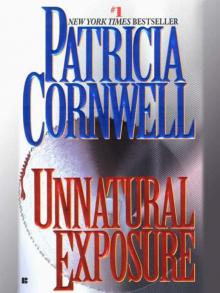 Unnatural Exposure
Unnatural Exposure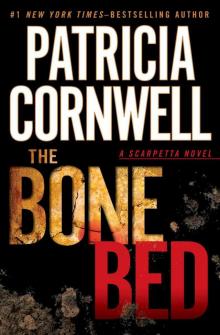 The Bone Bed
The Bone Bed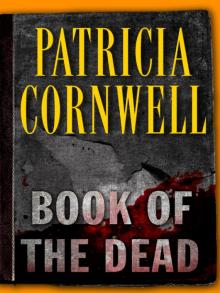 Book of the Dead
Book of the Dead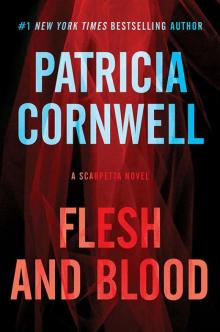 Flesh and Blood: A Scarpetta Novel (Scarpetta Novels Book 22)
Flesh and Blood: A Scarpetta Novel (Scarpetta Novels Book 22)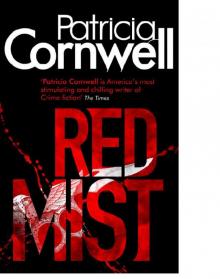 Red Mist
Red Mist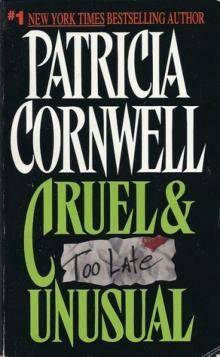 Cruel & Unusual
Cruel & Unusual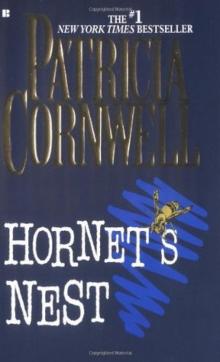 Hornet's Nest
Hornet's Nest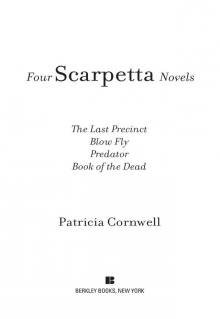 Four Scarpetta Novels
Four Scarpetta Novels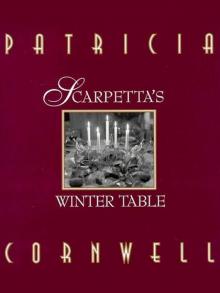 Scarpetta's Winter Table
Scarpetta's Winter Table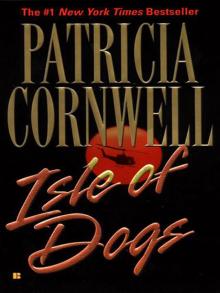 Isle of Dogs
Isle of Dogs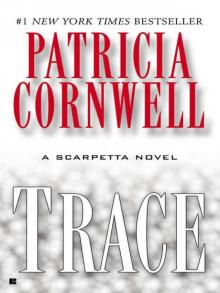 Trace
Trace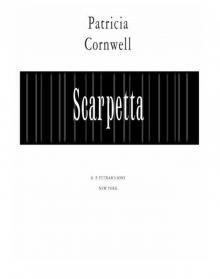 Postmortem
Postmortem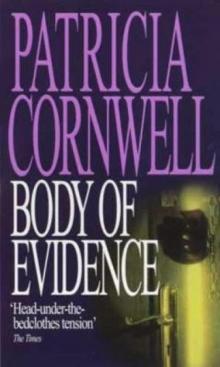 Body of Evidence ks-2
Body of Evidence ks-2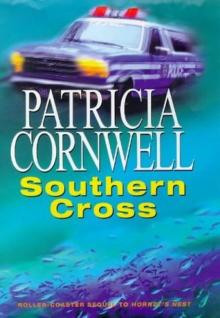 Southern Cross
Southern Cross All That Remains
All That Remains Point of Origin
Point of Origin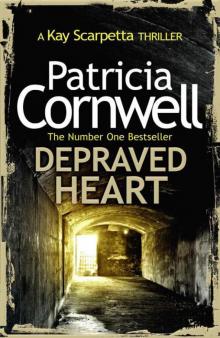 Depraved Heart
Depraved Heart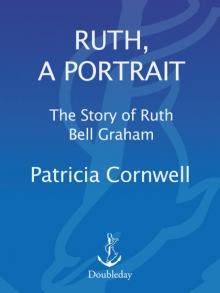 Ruth, a Portrait: The Story of Ruth Bell Graham
Ruth, a Portrait: The Story of Ruth Bell Graham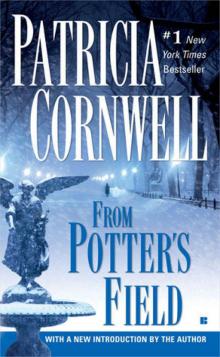 From Potter's Field
From Potter's Field Flesh and Blood
Flesh and Blood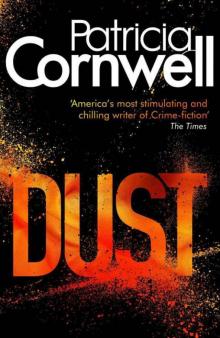 Dust
Dust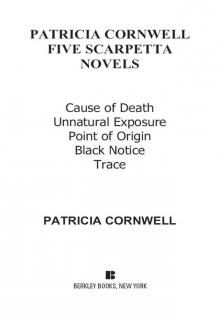 The Body Farm
The Body Farm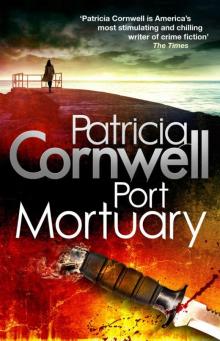 Port Mortuary
Port Mortuary Quantum
Quantum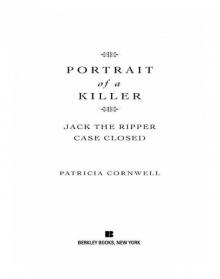 Portrait of a Killer: Jack the Ripper - Case Closed
Portrait of a Killer: Jack the Ripper - Case Closed Spin (Captain Chase)
Spin (Captain Chase)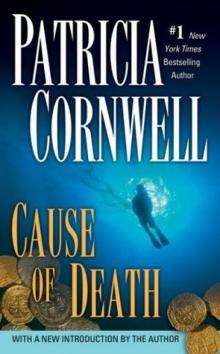 Cause of Death
Cause of Death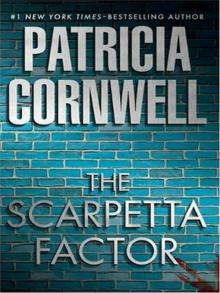 The Scarpetta Factor
The Scarpetta Factor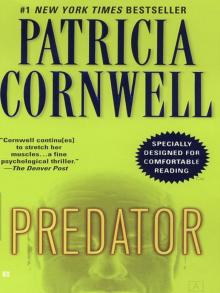 Predator
Predator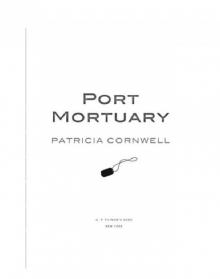 Scarpetta 18 - Port Mortuary
Scarpetta 18 - Port Mortuary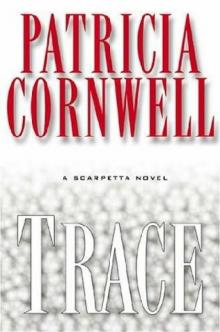 Trace ks-13
Trace ks-13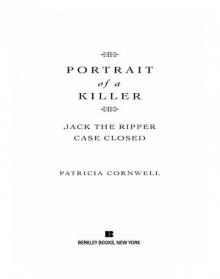 Portrait of a Killer
Portrait of a Killer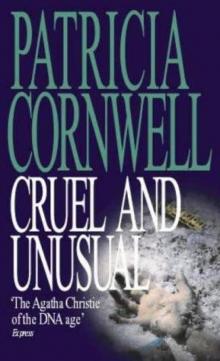 Cruel and Unusual ks-4
Cruel and Unusual ks-4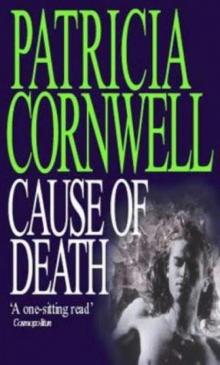 Cause Of Death ks-7
Cause Of Death ks-7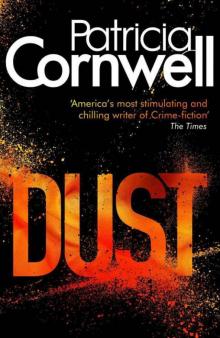 Dust ks-21
Dust ks-21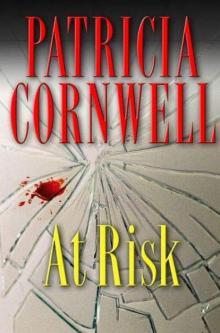 At Risk wg-1
At Risk wg-1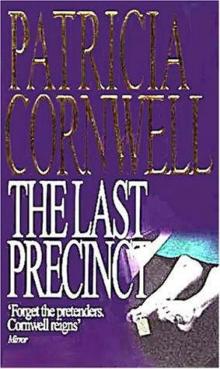 The Last Precinct ks-11
The Last Precinct ks-11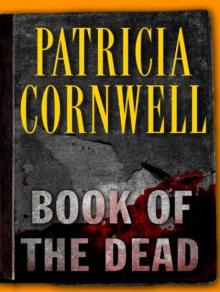 Book of the Dead ks-15
Book of the Dead ks-15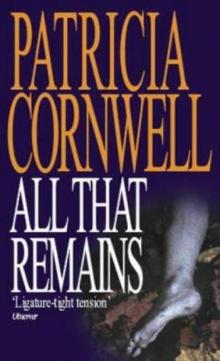 All That Remains ks-3
All That Remains ks-3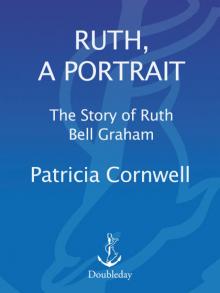 Ruth, a Portrait
Ruth, a Portrait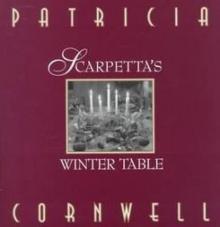 Scarpetta's Winter Table (kay scarpetta)
Scarpetta's Winter Table (kay scarpetta)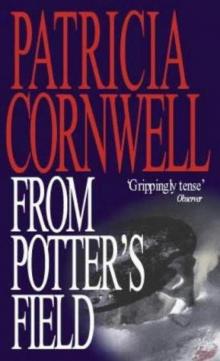 From Potter's Field ks-6
From Potter's Field ks-6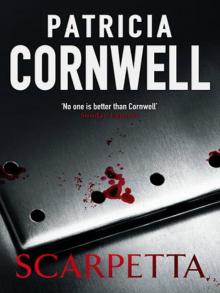 Scarpetta
Scarpetta Isle of Dogs jhabavw-3
Isle of Dogs jhabavw-3 Hornet's Nest jhabavw-1
Hornet's Nest jhabavw-1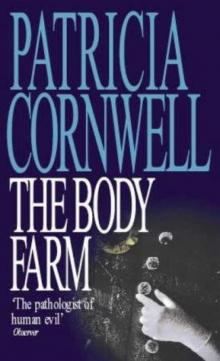 The Body Farm ks-5
The Body Farm ks-5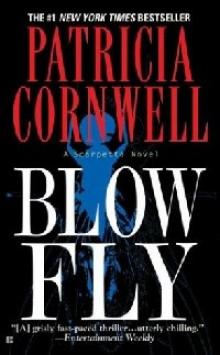 Blow Fly ks-12
Blow Fly ks-12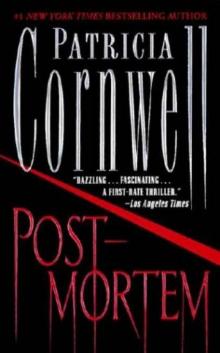 Post Mortem
Post Mortem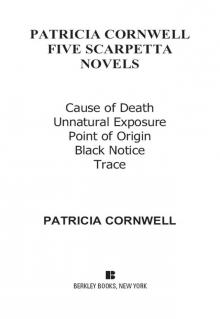 Five Scarpetta Novels
Five Scarpetta Novels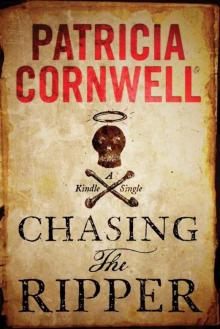 Chasing the Ripper (Kindle Single)
Chasing the Ripper (Kindle Single) Point of Origin ks-9
Point of Origin ks-9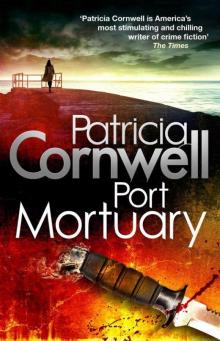 Port Mortuary (2010)
Port Mortuary (2010)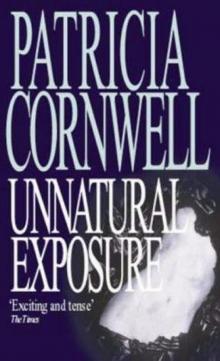 Unnatural Exposure ks-8
Unnatural Exposure ks-8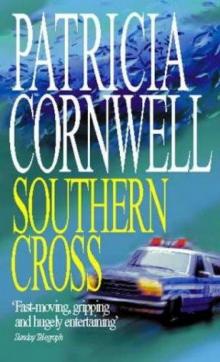 Southern Cross uhabavw-2
Southern Cross uhabavw-2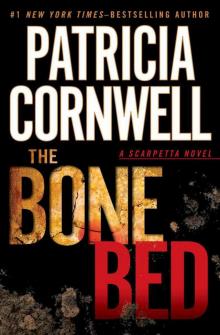 The Bone Bed ks-20
The Bone Bed ks-20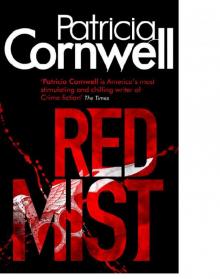 Red Mist ks-19
Red Mist ks-19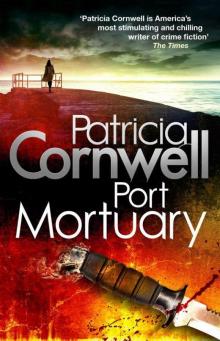 Port Mortuary (2010) ks-18
Port Mortuary (2010) ks-18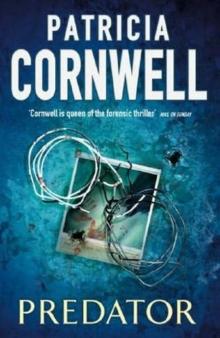 Predator ks-14
Predator ks-14